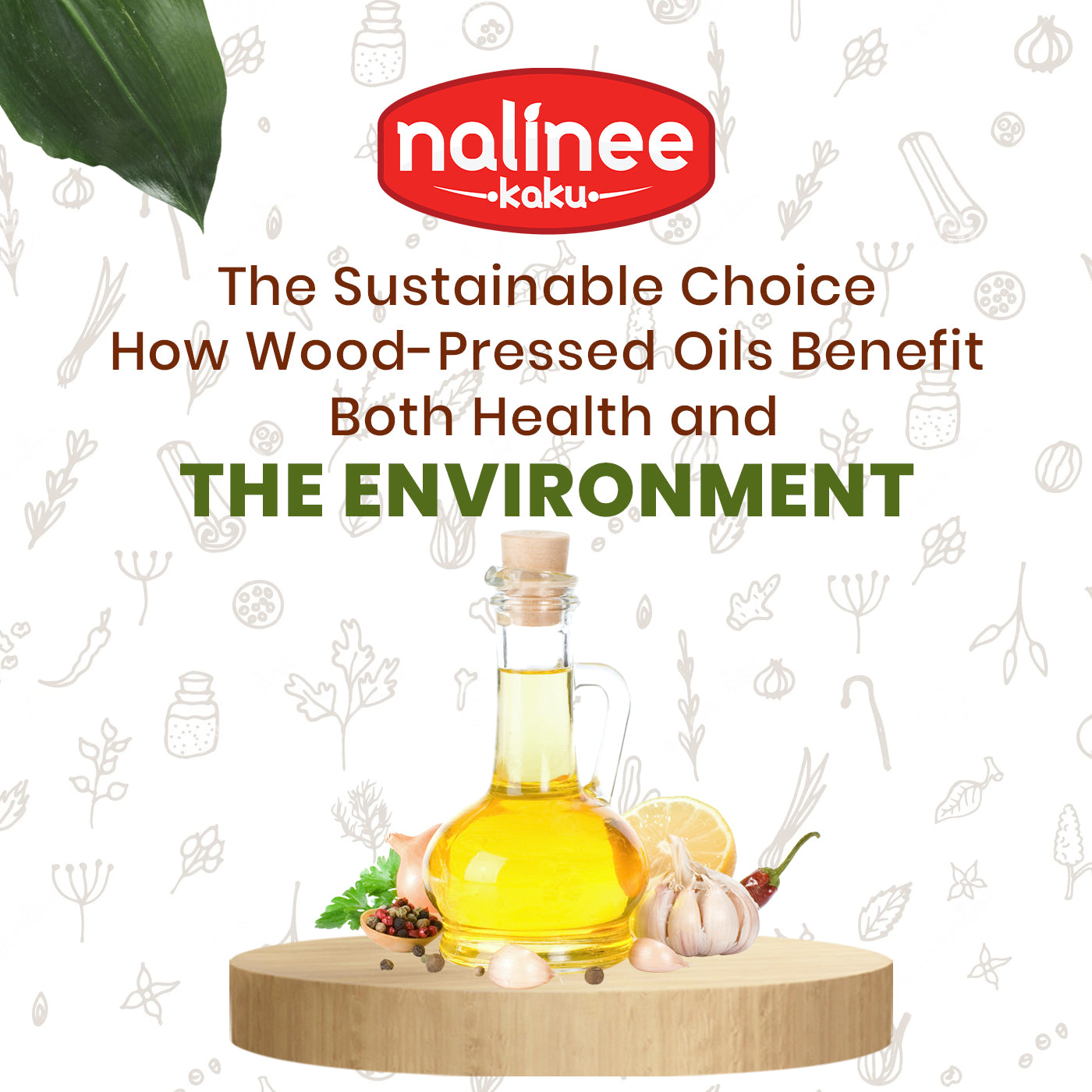The Sustainable Choice: How Wood-Pressed Oils Benefit Both Health and the Environment

Introduction
Wood-pressed oils represent a sustainable choice for both health-conscious individuals and environmentally aware consumers. These oils, extracted using traditional methods, offer numerous health benefits and contribute to a more eco-friendly lifestyle. This blog explores how wood-pressed oils benefit both health and the environment, making them a superior choice for your cooking needs.
Health Benefits of Wood-Pressed Oils
a. Nutritional Benefits
Wood-pressed oils are rich in essential nutrients that promote overall health. For instance, sesame oil contains vitamins E and K, along with antioxidants that protect against oxidative stress. Coconut oil provides medium-chain triglycerides (MCTs) that support energy levels and brain health.
b. Heart Health
Wood-pressed oils are beneficial for heart health due to their healthy fat content. They are high in monounsaturated and polyunsaturated fats, which help reduce bad cholesterol levels and lower the risk of cardiovascular diseases.
c. Digestive Health
Wood-pressed oils support digestive health by aiding in the production of digestive enzymes. They also enhance the absorption of fat-soluble vitamins and nutrients, contributing to a healthier digestive system.
d. Anti-Inflammatory Effects
Many wood-pressed oils have anti-inflammatory properties that can help alleviate inflammation in the body. For example, sesame oil contains sesamolins that have been shown to reduce inflammation and support joint health.
Environmental Benefits of Wood-Pressed Oils
a. Eco-Friendly Production
The production of wood-pressed oils involves traditional extraction methods that have a minimal environmental impact. Unlike industrial oil production, which requires extensive energy and resources, wood-pressed oil extraction is more sustainable.
b. Lower Carbon Footprint
Wood-pressed oil extraction produces fewer greenhouse gases compared to refined oil production. This helps reduce the overall carbon footprint associated with oil manufacturing and contributes to a greener planet.
c. Preservation of Natural Resources
Traditional oil extraction methods use fewer resources and have less environmental impact compared to industrial processes. This helps preserve natural resources and supports sustainable agricultural practices.
d. Support for Local Agriculture
Purchasing wood-pressed oils supports local farmers and producers who use traditional methods. This promotes sustainable agriculture and provides economic benefits to rural communities.
Incorporating Wood-Pressed Oils into Your Lifestyle
a. Choosing Sustainable Oils
Opt for wood-pressed oils that are produced using environmentally friendly practices. Look for certifications or labels that indicate sustainability and ethical production methods.
b. Cooking with Wood-Pressed Oils
Replace refined oils with wood-pressed oils in your cooking to enjoy their health benefits and rich flavors. Experiment with different oils to find the ones that best suit your taste and cooking needs.
c. Supporting Eco-Friendly Brands
Choose brands that prioritize sustainability and ethical practices. Supporting these brands helps promote environmentally friendly production methods and supports local communities.
Conclusion
Wood-pressed oils offer a sustainable choice for both health and environmental reasons. By incorporating these oils into your cooking and supporting eco-friendly brands, you can enjoy their numerous benefits while contributing to a more sustainable and healthier world.


